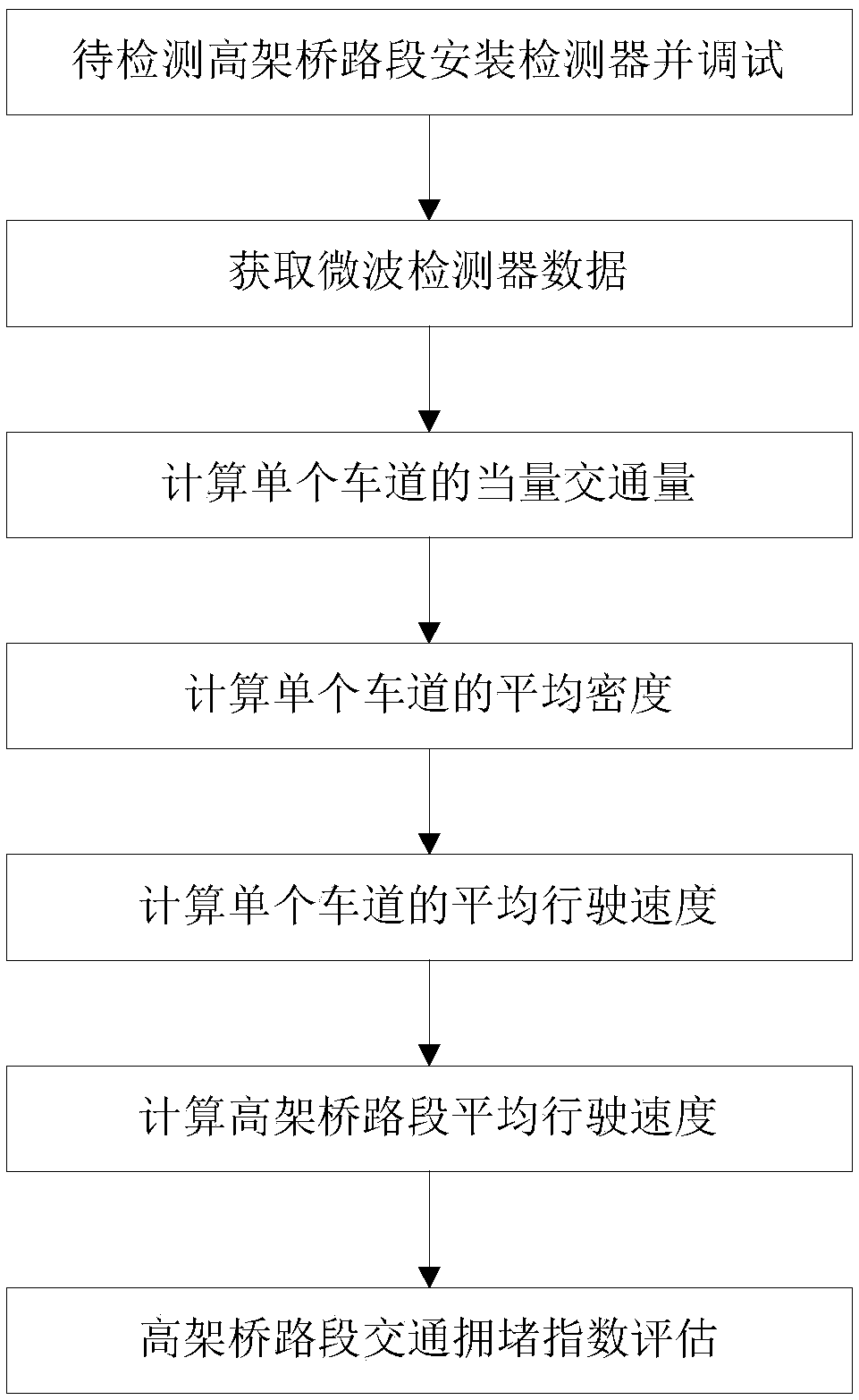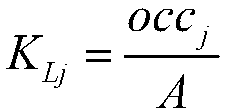Calculation Method of Traffic Congestion Index in Viaduct Section Based on Microwave Vehicle Detector
A technology of traffic congestion index and vehicle detector, which is applied in the traffic control system of road vehicles, traffic flow detection, traffic control system, etc., and can solve the problem of difficult to distinguish the main road of the viaduct and the downlink auxiliary road, the accuracy of data collection is not accurate, Complicated calculation process and other problems, to achieve the effect of guaranteed collection accuracy, high accuracy, and simple calculation process
- Summary
- Abstract
- Description
- Claims
- Application Information
AI Technical Summary
Problems solved by technology
Method used
Image
Examples
Embodiment 1
[0075] 1) Install and debug microwave vehicle detectors on the selected section of the north-south elevated highway in Hefei;
[0076] 2) Obtain the data measured by the microwave vehicle detector for a certain period of time
[0077] Lane 1: the number of vehicles of model 1 is 98; the number of vehicles of model 2 is 2; the number of vehicles of model 3 is 0; the number of vehicles of model 4 is 0; the time occupancy rate is 31%.
[0078] Lane 2: the number of vehicles of model 1 is 63; the number of vehicles of model 2 is 0; the number of vehicles of model 3 is 0; the number of vehicles of model 4 is 0; the time occupancy rate is 19%.
[0079] Lane 3: the number of vehicles of model 1 is 76; the number of vehicles of model 2 is 0; the number of vehicles of model 3 is 0; the number of vehicles of model 4 is 0; the time occupancy rate is 23%.
[0080] 3) Calculate the equivalent traffic volume of a single lane:
[0081] Lane 1: Equivalent traffic volume Q L1 =∑Q i E. i =...
Embodiment 2
[0098] 1) Install and debug microwave vehicle detectors on the selected section of the north-south elevated highway in Hefei;
[0099] 2) Obtain the data measured by the microwave vehicle detector for a certain period of time:
[0100] Lane 1: the number of vehicles of model 1 is 150; the number of vehicles of model 2 is 4; the number of vehicles of model 3 is 0; the number of vehicles of model 4 is 0; the time occupancy rate is 71%.
[0101] Lane 2: the number of vehicles of model 1 is 122; the number of vehicles of model 2 is 1; the number of vehicles of model 3 is 0; the number of vehicles of model 4 is 0; the time occupancy rate is 58%.
[0102] Lane 3: the number of vehicles of model 1 is 90; the number of vehicles of model 2 is 0; the number of vehicles of model 3 is 0; the number of vehicles of model 4 is 0; the time occupancy rate is 33%.
[0103] 3) Calculate the equivalent traffic volume of a single lane:
[0104] Lane 1: Equivalent traffic volume Q L1 =∑Q i E. ...
PUM
 Login to View More
Login to View More Abstract
Description
Claims
Application Information
 Login to View More
Login to View More - R&D
- Intellectual Property
- Life Sciences
- Materials
- Tech Scout
- Unparalleled Data Quality
- Higher Quality Content
- 60% Fewer Hallucinations
Browse by: Latest US Patents, China's latest patents, Technical Efficacy Thesaurus, Application Domain, Technology Topic, Popular Technical Reports.
© 2025 PatSnap. All rights reserved.Legal|Privacy policy|Modern Slavery Act Transparency Statement|Sitemap|About US| Contact US: help@patsnap.com



